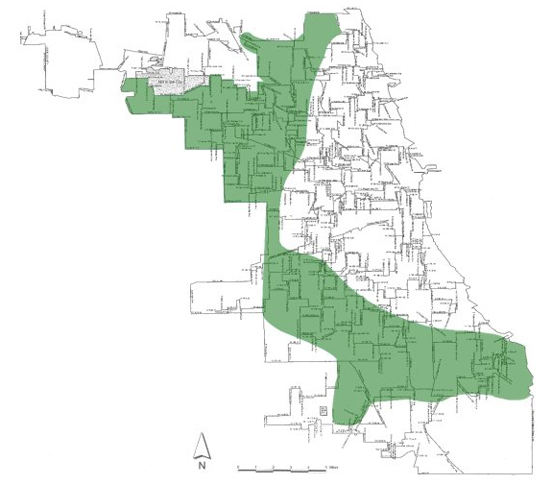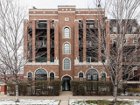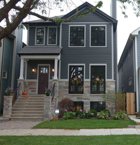
It's not too often you find a home for sale with its' own private beach but this Menard Johnson listing AT 1215 Whitebridge Hill in Winnetka has one and a whole lot more.
This one-owner estate built in 2001 features a 15,000 square foot home with unparalleled views from inside as well as from six balconies.
This home has the feeling of comfort with extraordinary elegance. The Foyer features a double floating staircase and marble mosaic floors to welcome you home.
The great room and living room both feature hand-beveled walnut floors and the entire home features custom cabinetry and moldings throughout.
This luxurious home features six bedrooms, six full baths, four powder rooms, seven fireplaces, a wood-paneled elevator and more.
The magnificently appointed kitchen includes stone floors and a breakfast room that leads to the staircase that will take you to your 150-foot private beach.
Other custom amenities include a state of the art 12-seat theater, an indoor pool with handpainted mural inspired by the Beverly Hills Hotel and a double-sided fireplace with stone facade that faces the family room and pool.
There's also a sun room, wood-carved bar, exercise room with steam shower and massage room, cedar closet, dark room, second kitchen, library, sitting area and more.
This is a home you have to witness to believe! To learn more about this property at 1215 Whitebridge Hill Road in Winnetka, contact Menard Johnson today or click here to see the full listing.







 2154 W. Roscoe #2 from 12pm-2pm
2154 W. Roscoe #2 from 12pm-2pm 2030 W. Fletcher from 1pm-3pm New Construction
2030 W. Fletcher from 1pm-3pm New Construction 3322 N. Hamilton from 1pm-3om New Construction
3322 N. Hamilton from 1pm-3om New Construction All of these questions only lead to one thing - change. Nothing stays the same and every year we grow in different ways and our lives naturally create something new. Change is exciting and scary, but it continually evolves. We really don’t have a choice.
All of these questions only lead to one thing - change. Nothing stays the same and every year we grow in different ways and our lives naturally create something new. Change is exciting and scary, but it continually evolves. We really don’t have a choice.
